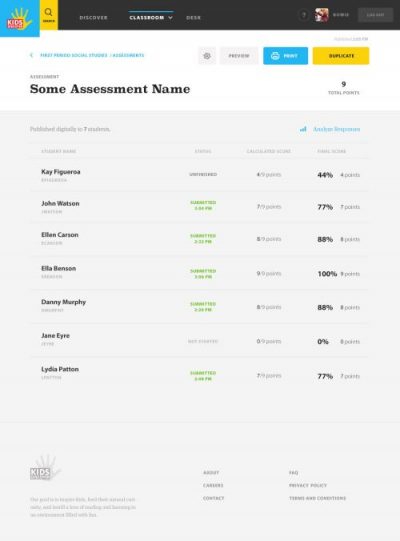Can schools punish students for off-campus, online speech?

Clay Calvert, University of Florida
In January 2014, Reid Sagehorn, a student at Rogers High School in Minnesota, jokingly tweeted “actually yeah” in response to a question about whether he had made out with one of his high school teachers.
The public school, acting on the tweet, suspended him for seven weeks. Sagehorn, a member of the National Honor Society, fought the suspension in a federal court, claiming the actions of school officials violated his First Amendment right to free speech.
Did the school have the right to punish him for his off-campus expression? It turns out – no.
In August 2015, a federal judge rejected the school officials’ motion to have the case dismissed. After all, the court found that Sagehorn made the post while away from campus, during nonschool hours, without using the school’s computers. And last month Sagehorn collected a settlement of more than US$400,000.
Sadly, Reid Sagehorn’s case is not unique. For at least the past 15 years, schools across the nation have engaged in Orwellian overreaches into the homes and bedrooms of students to punish them for their off-campus, online expression regarding classmates, teachers and administrators.
Despite the bevy of cases, the issue of whether schools can punish students for off-campus, online speech remains unresolved.
Cases where school kids were suspended
For instance, in April 2015, a federal court in Oregon considered a case called Burge v Colton School District 53 in which an eighth grader was suspended from his public middle school based upon out-of-school comments he posted on his personal Facebook page.
And in September 2014, a federal court in New York considered a case called Bradford v Norwich City School District in which a public high school student was suspended “based on a text-message conversation he had with another student regarding a third student while outside of school.”
Judge Glenn Suddaby observed in Bradford that “the Supreme Court has yet to speak on the scope of a school’s authority to discipline a student for speech that does not occur on school grounds or at a school-sponsored event.”
Silence from the Supreme Court
Indeed, a key problem here is that the US Supreme Court has never ruled in a case involving the off-campus speech rights of students in the digital era.
Public school students do possess First Amendment speech rights, although those rights are not the same as those of adults in nonschool settings.
A case in point is the Supreme Court’s famous 1969 proclamation in Tinker v Des Moines Independent Community School District that students do not
“shed their constitutional rights to freedom of speech or expression at the schoolhouse gate.”

A key problem has been the silence of the Supreme Court on free speech rights of students.
Jeff Kubina, CC BY-SA
In this case, a divided court upheld the right of students to wear to school black armbands emblazoned with peace signs as a form of political protest against the war in Vietnam. The majority reasoned that such speech could be stopped only if school officials had actual facts to believe it would lead to a substantial and material disruption of the educational atmosphere.
But Tinker was an on-campus speech case. And although the Supreme Court has considered three more student speech cases since Tinker, none involved either off-campus or digital expression.
A chance to resolve the issue
Schools today are trying to exert their authority far beyond the schoolhouse gate. Some courts have allowed these efforts and others have rejected them, but now the Supreme Court has a prime opportunity to resolve the matter in a case called Bell v Itawamba County School Board.
In January 2011, a Mississippi high school student, Taylor Bell, was suspended from Itawamba Agricultural High School after he posted, while away from campus during nonschool hours, a homemade rap video to Facebook and YouTube.
In the video, Bell criticizes in no uncertain terms two male teachers for their alleged sexual harassment of minor female students. A version of rap that describes the resulting controversy is available online.
In August 2015, the US Court of Appeals for the Fifth Circuit narrowly ruled that high school officials in Mississippi did not violate the First Amendment speech rights of Bell when they punished him for posting the video because it allegedly threatened two teachers.
In a ruling against Taylor Bell, the Fifth Circuit majority concluded that the rule from the Tinker case applies to off-campus speech:
when a student intentionally directs at the school community speech reasonably understood by school officials to threaten, harass, and intimidate a teacher, even when such speech originated, and was disseminated, off-campus without the use of school resources.
One of the judges in the case, James Dennis, writing in dissent, ripped into the majority for broadly proclaiming “that a public school board is constitutionally empowered to punish a student whistleblower for his purely off-campus Internet speech publicizing a matter of public concern.”
Judge Dennis stressed that the rule from Tinker, which requires school officials to reasonably predict a substantial and material disruption will be caused by speech before it can be stopped, does not apply to off-campus speech cases.
Why the Supreme Court should hear the Taylor Bell case
Some minors inevitably will post and upload – while away from campus and using their own digital communication devices – allegedly disparaging, offensive or threatening messages and images about fellow students, teachers and school officials on social media platforms such as Facebook, Twitter, YouTube and Snapchat.
The key question, then, is whether and to what extent public schools, consistent with the First Amendment, may discipline students for their off-campus speech.
In November 2015, Bell filed a petition with the US Supreme Court asking it to hear his case.
As Bell’s attorneys argue, the court should take the case because whether or not Tinker applies to off-campus speech cases has “vexed school officials and courts across the country.”
In December, the organization I direct, the Marion B Brechner First Amendment Project, filed a friend-of-the-court brief urging the court to take the case.
Briefs from the attorneys for the school are due January 20, and the court will decide whether to hear Bell later this spring.
The bottom line is this: public school students deserve the right to know, pre-posting and pre-texting, what their First Amendment rights are when they are away from campus.
They must, in other words, be given fair notice. The court should hear Bell to let them know precisely what their rights are. It is an issue not likely to go away soon.
![]()
Clay Calvert, Brechner Eminent Scholar in Mass Communication, University of Florida
This article was originally published on The Conversation. Read the original article.
Read all of our posts about EdTech and Innovation by clicking here.





